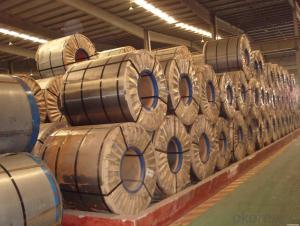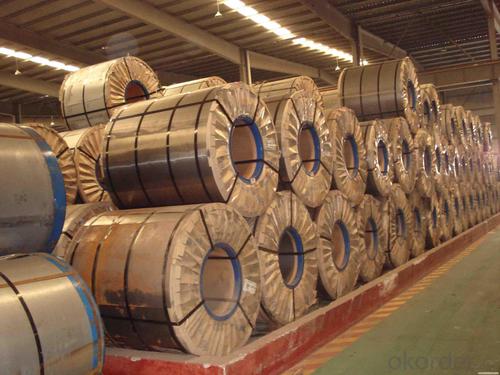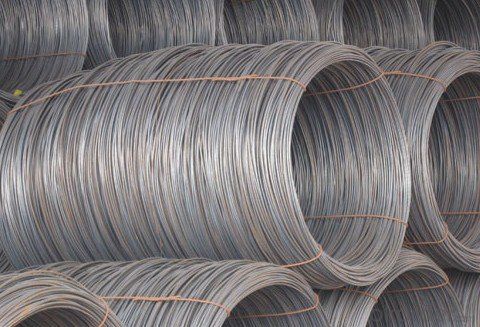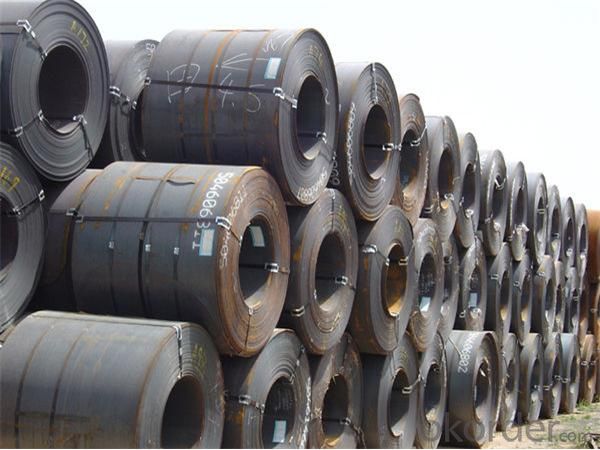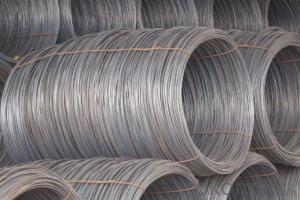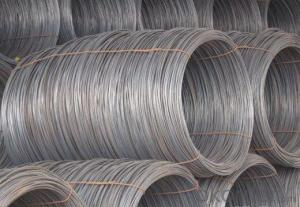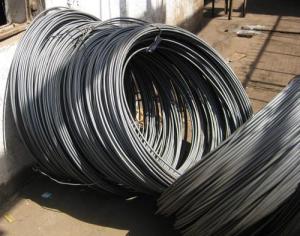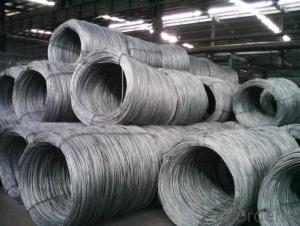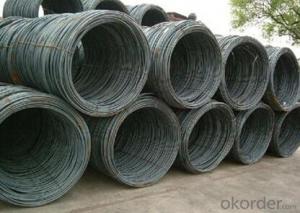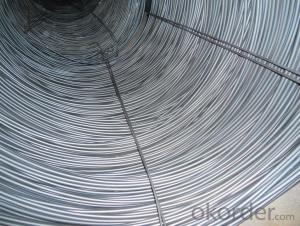Alloy Steel 8mm SAE 1010 Coils Steel Wire Rod
- Loading Port:
- China main port
- Payment Terms:
- TT OR LC
- Min Order Qty:
- 30 m.t.
- Supply Capability:
- 10000 m.t./month
OKorder Service Pledge
OKorder Financial Service
You Might Also Like
Specification
Product information:
Secifications
8mm SAE 1010b Coils Steel Wire Rod
other name: 5.5mm-12mm wire rod in coil
1.Grade: SAE 1006B,SAE 1008B,AISI 1050, AISI 1070
2.Diameter: 5.5mm-12mm
sae 1008 steel wire rod
Product | sae 1008 low carbon steel wire rod price steel wire rod carbon steel wire rod |
Standard | AISI, SAE,ASTM, BS, DIN, GB, JIS |
Steel grade | Q195,Q235,SAE1006B, SAE1008B, SAE1010B, SAE1018B, AISI 1010, AISI 1020, AISI 1050, AISI 1070 or according to customers requirements |
Material | Mild steel, iron, carbon, steel, ms |
Wire Gauge | 5.5mm,6.5mm,8mm,10mm,12mm-18mm, |
Technique | Hot rolled, Cold Drawn |
Coil weight | 1.8-2.1mts |
MOQ | 10MT |
Delivery Time | 15-30 days after receipt of L/C or deposit by T/T |
Packing | In coil and load in container, if large quantity, by bulk vessel; Can be packed as customers' special requirements |
Payment terms | 1).100% irrevocable L/C at sight. |
Application | widely used in machinery parts, manufacturing industry, electronics industry, metal tools and others |
Product Show:
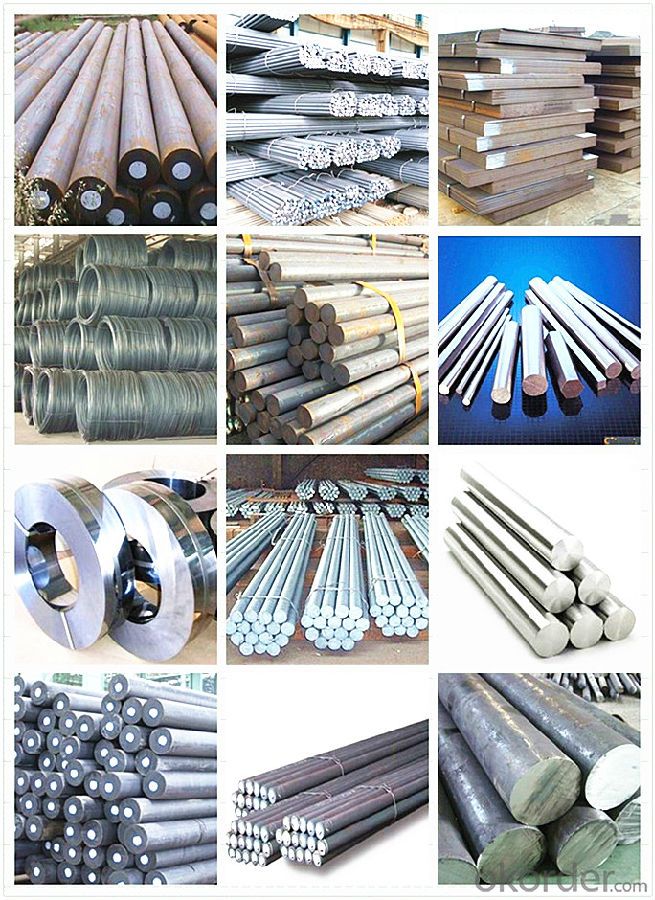
Workshop Show:
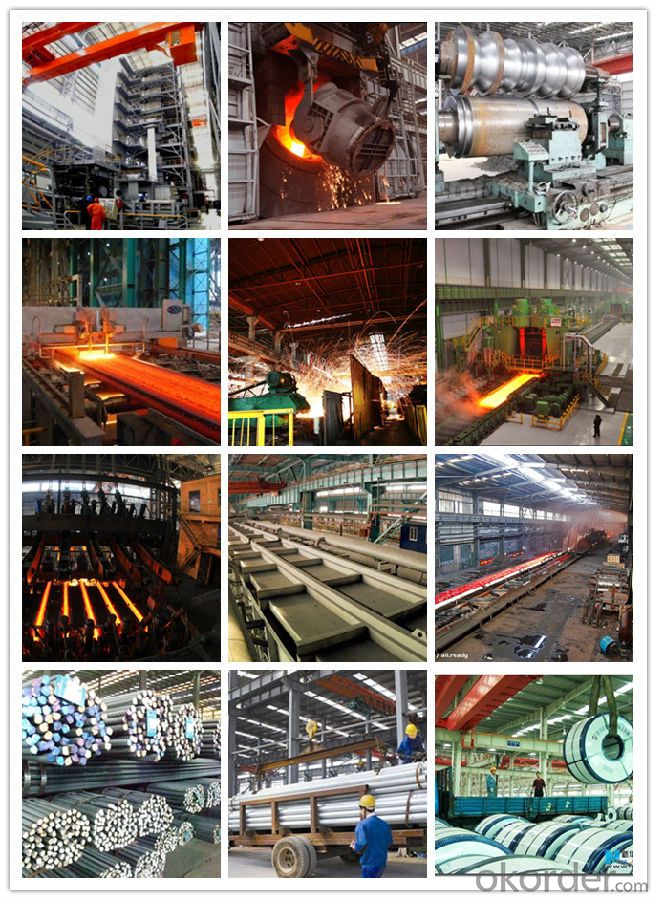
Shipping
1. FedEx/DHL/UPS/TNT for samples, Door-to-Door;
2. By Air or by Sea for batch goods, for FCL; Airport/ Port receiving;
3. Customers specifying freight forwarders or negotiable shipping methods!
Delivery Time: 3-7 days for samples; 5-25 days for batch goods.
Payment Terms
1.Payment: T/T, L/C, Western Union, MoneyGram,PayPal; 30% deposits; 70% balance before delivery.
2.MOQ: 1pcs
3.Warranty : 3 years
4.Package Informations: 1) EXPORT, In 20 feet (GW 25 ton) or 40 feet Container (GW 25 ton)
2)as customer's requirement
Why choose us?
(1) The leading exporter in China special steel industry.
(2) Large stocks for various sizes, fast delivery date.
(3) Good business relationship with China famous factories.
(4) More than 7 years steel exporting experience.
(5) Good after-sales service guarantee.
- Q: How is stainless steel used in food processing?
- Stainless steel is widely used in food processing due to its hygienic properties and corrosion resistance. It is commonly used to manufacture equipment such as tanks, pipes, and utensils, ensuring that the food remains uncontaminated and safe for consumption. Additionally, stainless steel is easy to clean and maintain, making it an ideal material for food processing environments where cleanliness and sanitation are crucial.
- Q: How does special steel perform in high-temperature applications?
- Special steel performs exceptionally well in high-temperature applications. It has excellent heat resistance and can withstand extreme heat without losing its strength or shape. This makes it highly suitable for use in industries such as aerospace, power generation, and automotive, where it is exposed to high temperatures and thermal stress. Additionally, special steel exhibits good oxidation and corrosion resistance, ensuring its durability and reliability in these demanding conditions.
- Q: What is the significance of tensile strength in special steel?
- Tensile strength is of great significance in special steel because it determines the steel's ability to withstand stretching or pulling forces without breaking or deforming. This property is crucial in various industries, especially in manufacturing and construction, where high tensile strength is required for structural integrity and safety. Special steel with superior tensile strength can withstand heavy loads, resist impacts, and provide durability, making it highly sought after in applications such as building infrastructure, automotive manufacturing, and aerospace engineering.
- Q: How does special steel contribute to the performance of industrial machinery?
- Special steel plays a crucial role in enhancing the performance of industrial machinery in various ways. Firstly, special steel possesses superior mechanical properties such as high strength, hardness, and toughness, which make it suitable for withstanding heavy loads, vibrations, and impact forces commonly encountered in industrial applications. This enables the machinery to operate efficiently and reliably under demanding conditions. Moreover, special steel has excellent corrosion resistance, which is particularly important in industries where machinery is exposed to harsh environments or corrosive substances. By preventing the degradation of components due to corrosion, special steel helps to extend the lifespan of the machinery and reduce maintenance costs. Additionally, special steel can be tailored to specific applications through various alloying elements and heat treatments. This allows manufacturers to optimize the material's properties to meet the specific requirements of the industrial machinery, such as wear resistance, heat resistance, or high-temperature strength. By using special steel, manufacturers can achieve higher performance levels and improve the overall efficiency of their machinery. Furthermore, special steel offers superior dimensional stability and machinability. This ensures that components can be manufactured to precise specifications, thereby reducing the potential for errors or inaccuracies that may affect the performance of the machinery. The machinability of special steel also allows for easier fabrication and assembly, improving the overall production process and reducing manufacturing costs. In conclusion, special steel contributes significantly to the performance of industrial machinery through its superior mechanical properties, corrosion resistance, tailorability, dimensional stability, and machinability. By utilizing special steel in the construction of machinery components, manufacturers can enhance the durability, reliability, and efficiency of their products, ultimately leading to improved productivity and profitability in various industries.
- Q: How is precipitation-hardening steel used in the aerospace industry?
- Precipitation-hardening steel is commonly used in the aerospace industry due to its exceptional strength-to-weight ratio and high corrosion resistance. This type of steel undergoes a specialized heat treatment process that allows for the precipitation of particles within its microstructure, resulting in improved mechanical properties. These steels are used in various components and structures of aircraft, such as landing gears, engine parts, and structural frames, where strength, durability, and weight savings are crucial factors for performance and safety.
- Q: How does special steel contribute to reducing maintenance costs?
- Special steel contributes to reducing maintenance costs by offering superior strength, durability, and corrosion resistance compared to regular steel. Its enhanced properties make it more resistant to wear, fatigue, and damage, thereby decreasing the frequency of maintenance and replacement needs. Additionally, special steel's ability to withstand harsh operating environments and extreme temperatures ensures longer equipment lifespans, reducing the overall maintenance expenses in the long run.
- Q: How does special steel contribute to sustainability?
- Special steel contributes to sustainability in several ways. Firstly, special steel is highly durable and has a long lifespan. This means that products made from special steel, such as buildings, bridges, and machinery, have a longer service life compared to other materials. This reduces the need for frequent replacements and repairs, thereby reducing the consumption of resources and energy required for manufacturing. Secondly, special steel is recyclable. At the end of its life cycle, it can be easily collected and recycled into new steel products without any loss of quality. This reduces the demand for new raw materials and minimizes the environmental impact caused by mining and extraction processes. Furthermore, special steel is known for its strength and lightweight properties. This allows for the design and construction of lighter and more energy-efficient structures and vehicles. For example, by using special steel in automobiles, the weight of the vehicle can be reduced, resulting in lower fuel consumption and greenhouse gas emissions. Additionally, the production of special steel has become more sustainable over the years. Steel manufacturers are adopting advanced technologies and processes to reduce energy consumption, emissions, and waste generation. This includes using energy-efficient furnaces, recycling waste heat, and implementing water management strategies. Overall, the use of special steel contributes to a more sustainable future by promoting durability, recyclability, energy efficiency, and reduced environmental impact.
- Q: What are the mechanical properties of special steel?
- Special steel generally refers to high-performance alloys that have enhanced mechanical properties compared to conventional steels. These properties can vary depending on the specific composition and heat treatment of the special steel. However, some common mechanical properties of special steel include high strength, excellent toughness, improved wear resistance, and good corrosion resistance. Special steel is often used in applications requiring exceptional performance, such as in aerospace, automotive, and tooling industries.
- Q: What are the common heat treatment methods used for special steel?
- The common heat treatment methods used for special steel include annealing, normalizing, quenching, tempering, and hardening.
- Q: Can special steel be used for structural applications?
- Yes, special steel can be used for structural applications. Special steel refers to a wide range of steel alloys that are specifically designed to possess enhanced mechanical properties, such as increased strength, durability, and corrosion resistance. These qualities make special steel suitable for various structural applications, including buildings, bridges, pipelines, and heavy machinery.
Send your message to us
Alloy Steel 8mm SAE 1010 Coils Steel Wire Rod
- Loading Port:
- China main port
- Payment Terms:
- TT OR LC
- Min Order Qty:
- 30 m.t.
- Supply Capability:
- 10000 m.t./month
OKorder Service Pledge
OKorder Financial Service
Similar products
Hot products
Hot Searches
Related keywords
